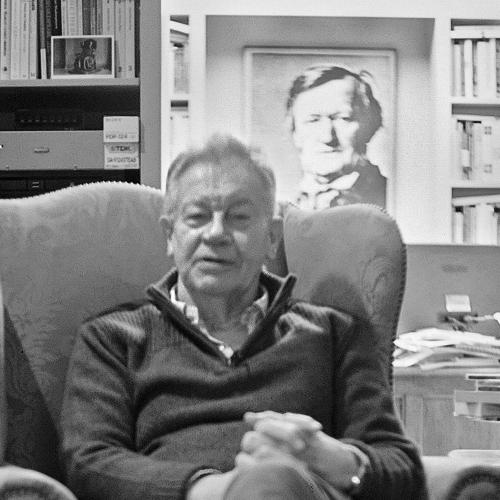COMPOSERS: Beethoven,Brahms,Chopin,Liszt,Schumann
LABELS: Audite
ALBUM TITLE: Beethoven, Brahms, Liszt, Chopin, Schumann
WORKS: Beethoven
Piano Concerto No. 1; Piano Sonatas: in D, Op. 10 No. 3; in A, Op. 101
Brahms
Piano Sonata No. 3;
3 Intermezzi, Op. 117
Liszt
Piano Sonata in B minor
Géza Anda (piano); Cologne Radio SO
Audite 23.408 147:19 mins (2 dis
PERFORMER: Romance in F sharp, Op. 28 No. 2
Géza Anda (piano)
CATALOGUE NO: 1.242361111
Listening to Géza Anda, playing such a widely contrasting range of composers (including Mozart in the May issue and Bartók in August), has been a source of almost undiluted enjoyment. There appears to be a vast archive of recordings in Cologne of concerts he gave for the radio, mainly without an audience. Although the discs to hand were recorded in the 1950s, and are in mono, the sound is rich and on occasion plummy. It sounds as if Anda favoured a Steinway or comparably velvety instrument. That works better for some of these composers than others, though we are now used to hearing the Viennese classics played on an instrument with a more incisive upper register. The Beethoven Concerto, numbered as ‘1’ but second in order of composition, is conducted by Anda, and the orchestra proves highly responsive. This radiant and exhilarating work gets as lively a performance as it deserves, and could easily be a first choice for anyone who isn’t addicted to state-of-the-art sound. It’s followed by a straightforward rendition of Beethoven’s first large-scale piano sonata, which Anda is careful not to over-dramatise; and then he plays the elusive, ground-breaking Op. 101, which, thanks to its seemingly improvisatory character, gets mauled by many pianists. Anda plays it spontaneously, but without searching for effect. The directness of his playing is one of its most attractive features, and is as rewarding in Chopin and Schumann as in classical repertoire. The extraordinary freshness of both these composers, in their approach to form, signalled by the capricious titles that Schumann often gave his works, and the very general ones which Chopin awarded his, comes across quite marvellously in all these performances. Anda wasn’t an exploiter of extremes, so if you want the unbridled fury of the last of Chopin’s Op. 28 Preludes go to Argerich; or to Richter to unleash a volcano in the penultimate Etude Op. 25. But listened to as whole sets, Anda offers unfailing insights, gives new life to numbers that can sound tired, and left me purring with satisfaction at such lack of ostentation. Anyone who thinks Romantic music has to be played with flamboyance should listen to the Liszt and Brahms here and will soon develop quite different priorities. Michael Tanner
